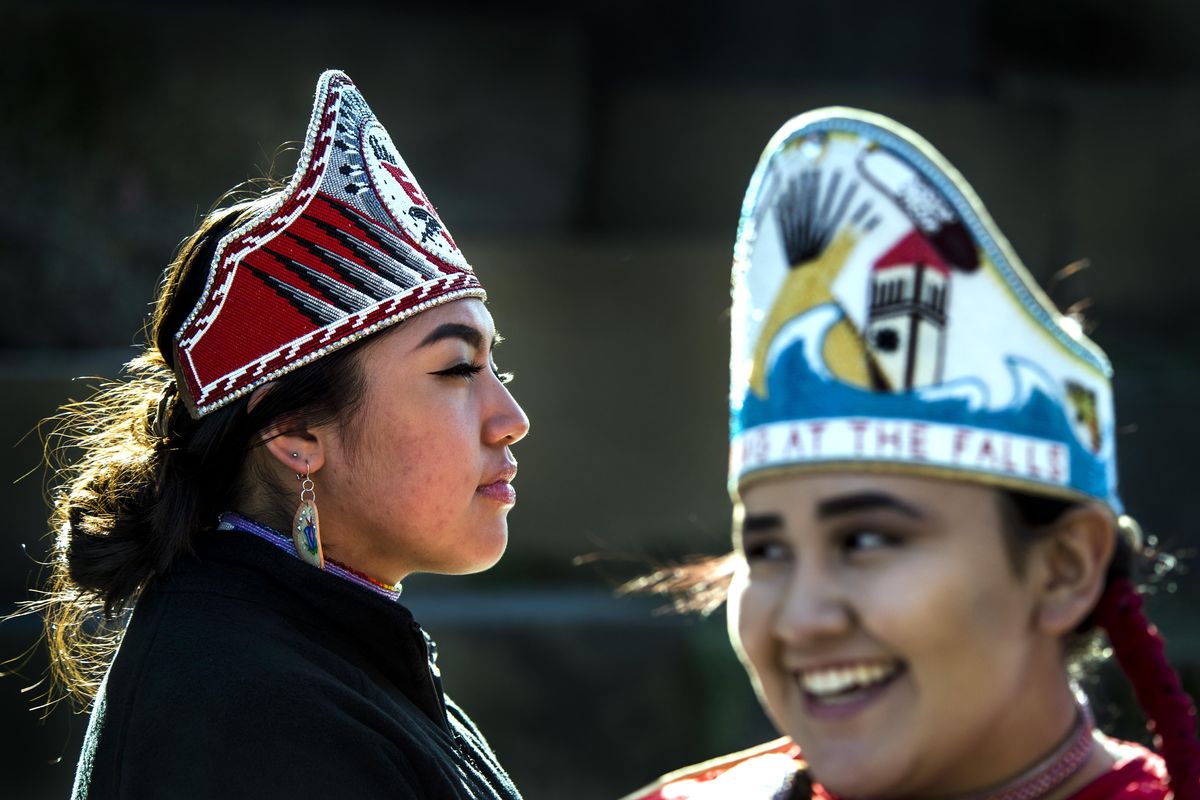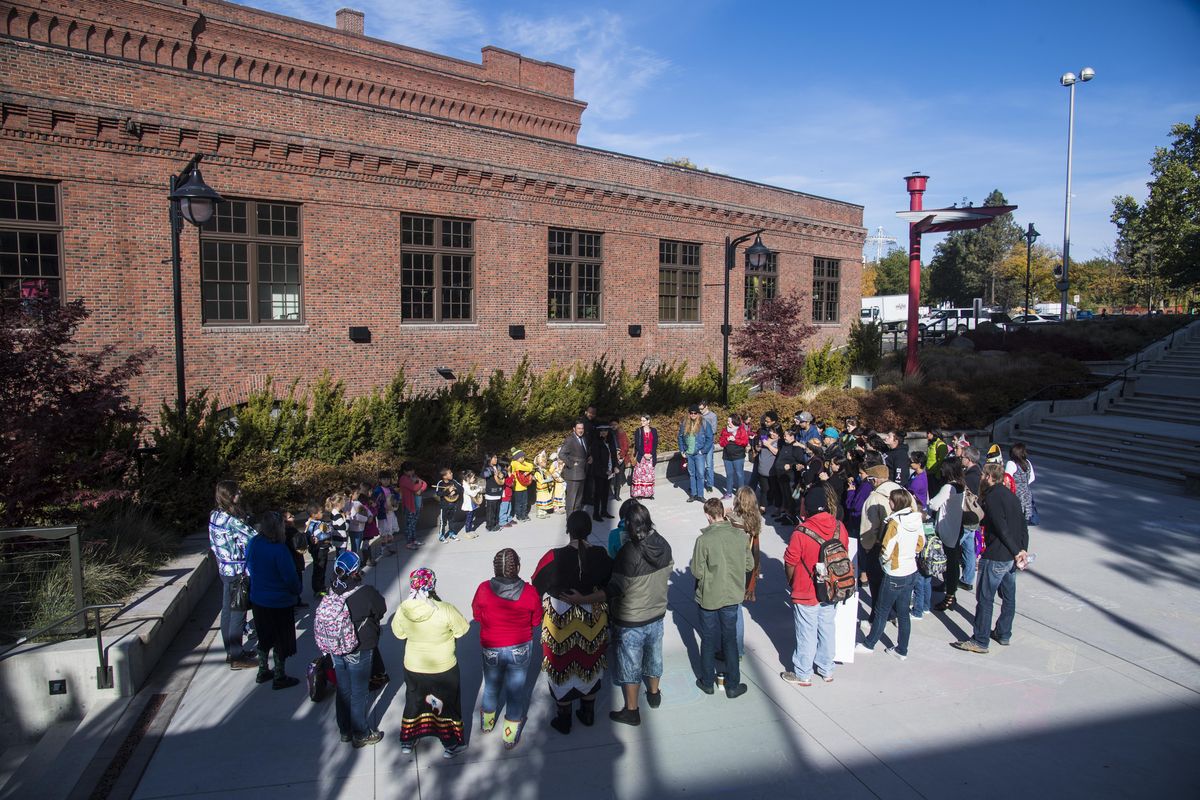Highlighting native heritage: Indigenous Peoples Day celebrated in downtown Spokane
Thea Garcia, 18, Miss Spirit of the Eagle, left, and Karalyn Sagle, 17, 2014 Miss Gathering at the Falls, attend the Indigenous Peoples Day Celebration on Monday at the Spokane Tribal Gathering Place next to Spokane City Hall. (Dan Pelle / The Spokesman-Review)Buy a print of this photo
Monday was Indigenous Peoples Day in Spokane, and more than 100 people gathered downtown to celebrate the occasion with songs and speeches about native history and culture.
It’s been a little more than a year since the City Council renamed the holiday that’s still called Columbus Day in most of the United States.
Native American leaders said the change reaffirms the historical significance of their people to the region, as well as the Italian explorer’s role in the slave trade and other atrocities.
“It’s past time to recognize the indigenous people and their contributions, and the genocide that took place,” said LaRae Wiley, executive director of the Salish School of Spokane.
“No healing can happen” until that’s done, she said.
Iaitia Farrell, an 18-year-old member of the Standing Rock Sioux Tribe who graduated from Rogers High School last year, put it more bluntly: “Celebrating a man who caused mass genocide and rape to our people is absolutely disgusting.”
Monday’s gathering began at the Spokane Tribal Gathering Place, a plaza beside City Hall overlooking the Spokane River, where kindergartners and first-graders from the Salish School beat drums and a sang a song taught to them by a tribal elder. The crowd later walked to the Spokane Public Schools building to hear from district administrators.
City Council President Ben Stuckart was among those who addressed the crowd, drawing attention to his status as a white man and the bloody conquests that landed him in Spokane.
“We have a long way to go to recognize our history,” Stuckart said. “Every day should be Indigenous Peoples Day. Everything is sacred around here.”
Farrell said many children grow up with troubling misconceptions about Native Americans because their true history has been written out of most textbooks.
Farrell was part of a native group that visited Garfield Elementary last year. She said she was disturbed when children asked if she rides buffalo and lives in a teepee.
“It’s ridiculous, and it’s because of their education,” she said. “We’re normal, modern people.”
Spokane followed Seattle and other cities in formally recognizing Indigenous Peoples Day. Los Angeles recently became the largest city to make the change, and last week Moscow became the first city in Idaho. The states of Alaska, Oregon, South Dakota and Vermont don’t recognize Columbus Day.
JoAnn Kauffman, a member of the Nez Perce Tribe who owns a downtown consulting firm, said, “When you fight for the rights of indigenous people, to protect indigenous people, you’re really fighting to protect everybody.”





